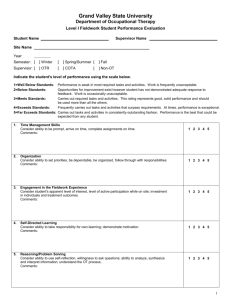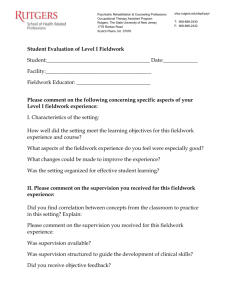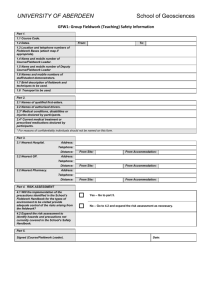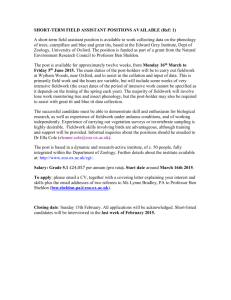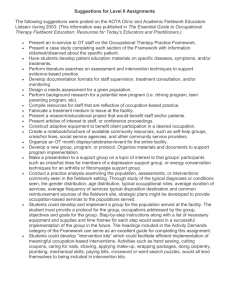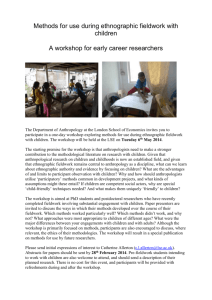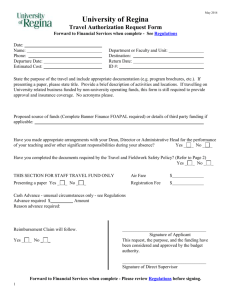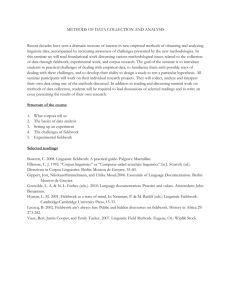here - WordPress.com
advertisement
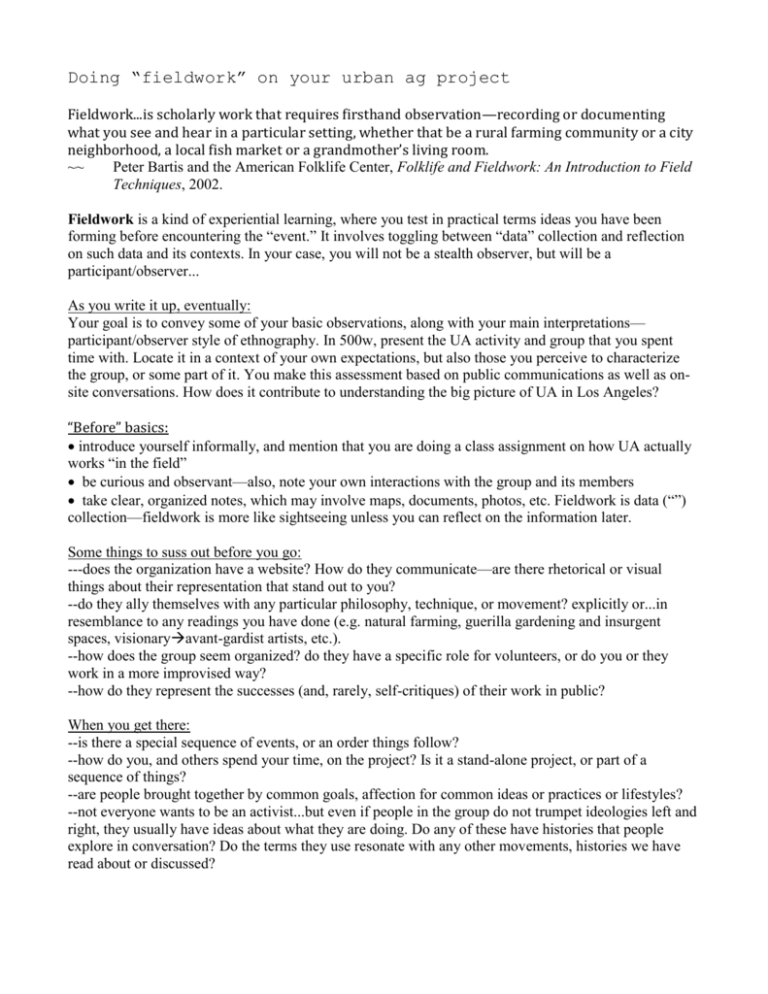
Doing “fieldwork” on your urban ag project Fieldwork...is scholarly work that requires firsthand observation—recording or documenting what you see and hear in a particular setting, whether that be a rural farming community or a city neighborhood, a local fish market or a grandmother’s living room. ~~ Peter Bartis and the American Folklife Center, Folklife and Fieldwork: An Introduction to Field Techniques, 2002. Fieldwork is a kind of experiential learning, where you test in practical terms ideas you have been forming before encountering the “event.” It involves toggling between “data” collection and reflection on such data and its contexts. In your case, you will not be a stealth observer, but will be a participant/observer... As you write it up, eventually: Your goal is to convey some of your basic observations, along with your main interpretations— participant/observer style of ethnography. In 500w, present the UA activity and group that you spent time with. Locate it in a context of your own expectations, but also those you perceive to characterize the group, or some part of it. You make this assessment based on public communications as well as onsite conversations. How does it contribute to understanding the big picture of UA in Los Angeles? “Before” basics: introduce yourself informally, and mention that you are doing a class assignment on how UA actually works “in the field” be curious and observant—also, note your own interactions with the group and its members take clear, organized notes, which may involve maps, documents, photos, etc. Fieldwork is data (“”) collection—fieldwork is more like sightseeing unless you can reflect on the information later. Some things to suss out before you go: ---does the organization have a website? How do they communicate—are there rhetorical or visual things about their representation that stand out to you? --do they ally themselves with any particular philosophy, technique, or movement? explicitly or...in resemblance to any readings you have done (e.g. natural farming, guerilla gardening and insurgent spaces, visionaryavant-gardist artists, etc.). --how does the group seem organized? do they have a specific role for volunteers, or do you or they work in a more improvised way? --how do they represent the successes (and, rarely, self-critiques) of their work in public? When you get there: --is there a special sequence of events, or an order things follow? --how do you, and others spend your time, on the project? Is it a stand-alone project, or part of a sequence of things? --are people brought together by common goals, affection for common ideas or practices or lifestyles? --not everyone wants to be an activist...but even if people in the group do not trumpet ideologies left and right, they usually have ideas about what they are doing. Do any of these have histories that people explore in conversation? Do the terms they use resonate with any other movements, histories we have read about or discussed?

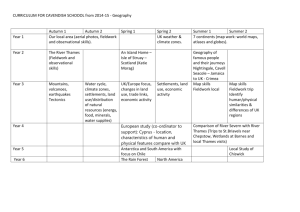
![Fieldwork Guidelines [doc]](http://s3.studylib.net/store/data/007168814_1-e9b2e04da406bf0432c39e31bfe8abff-300x300.png)
